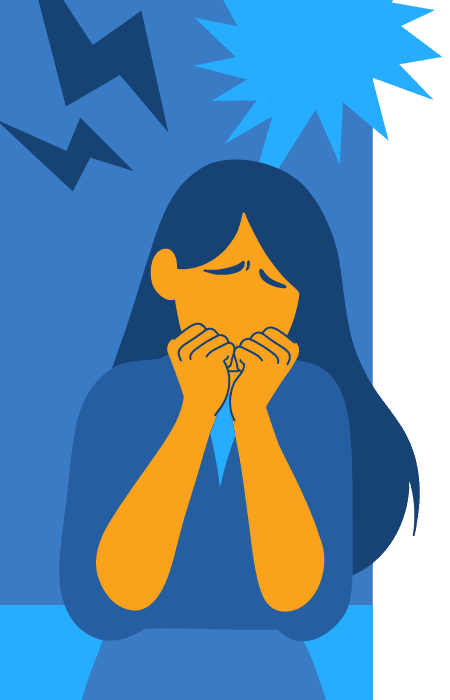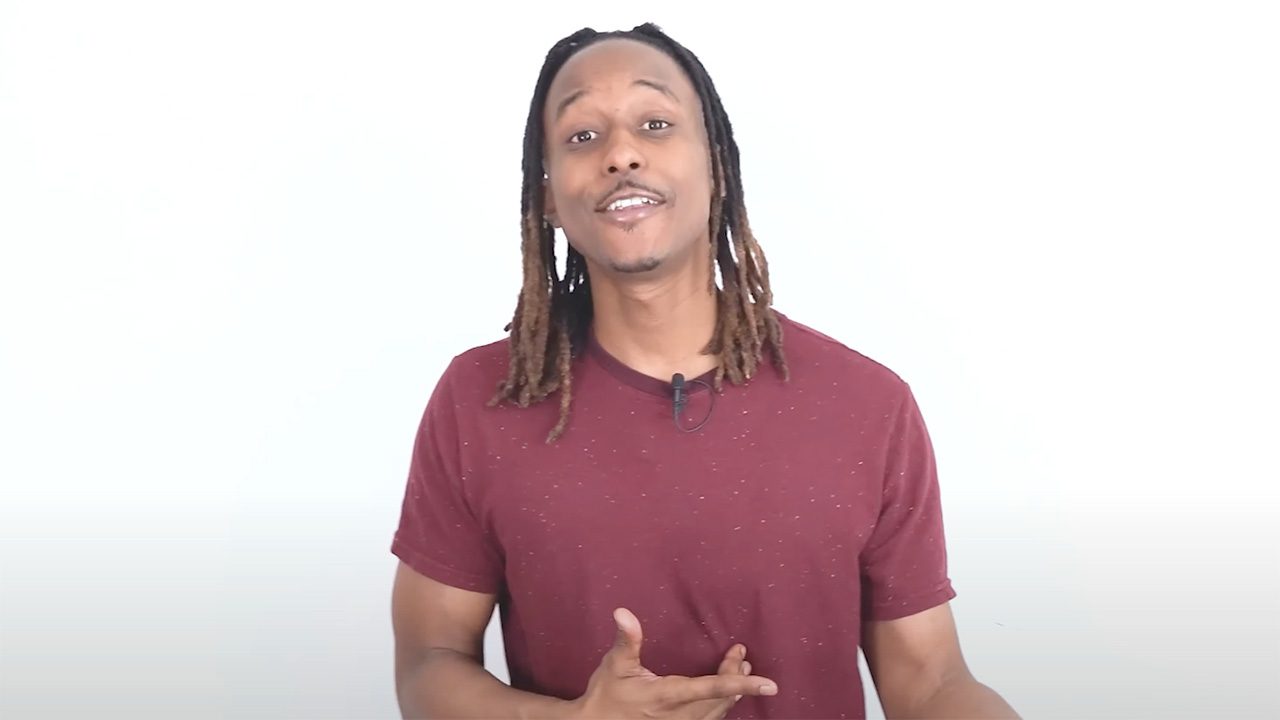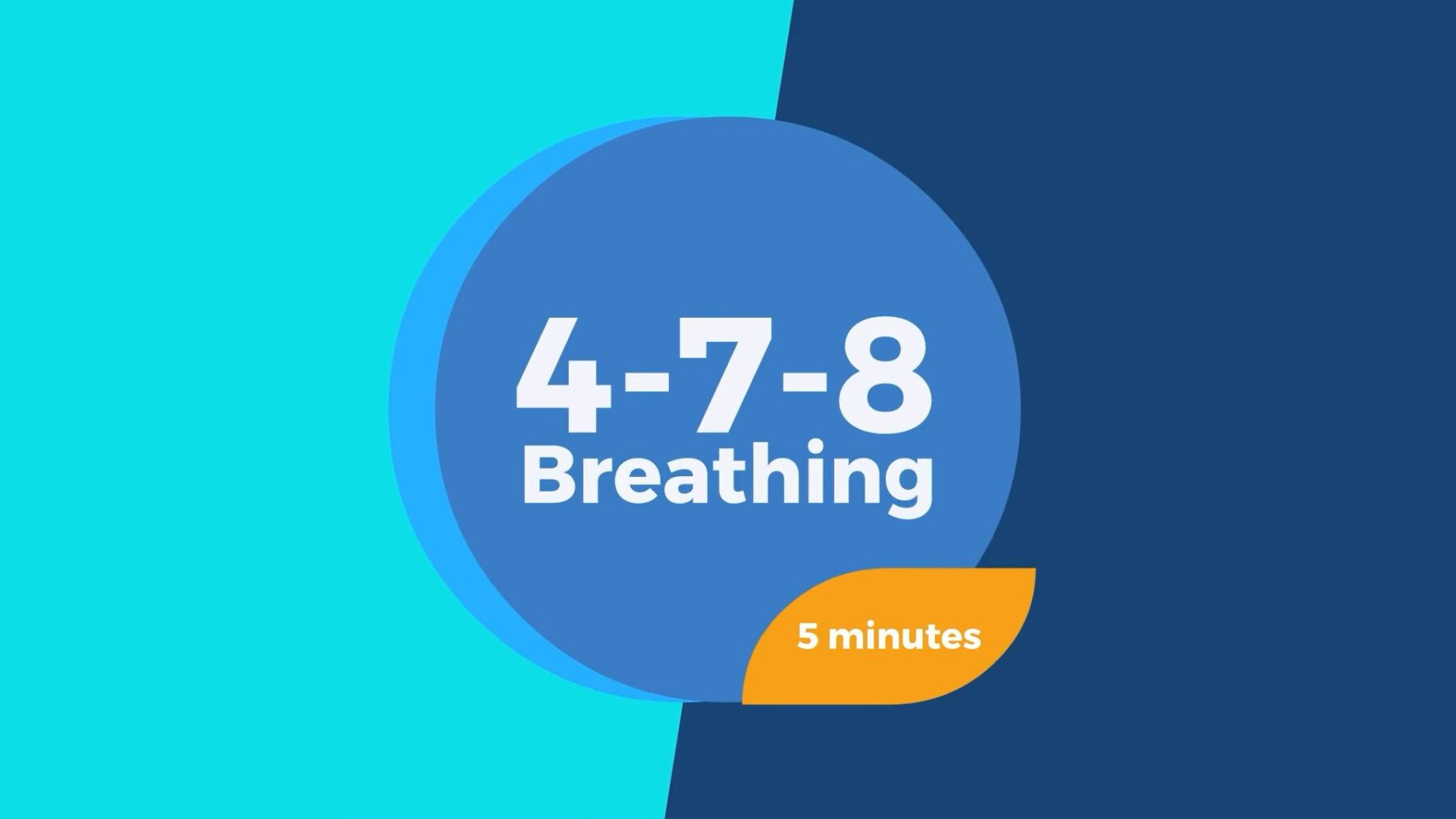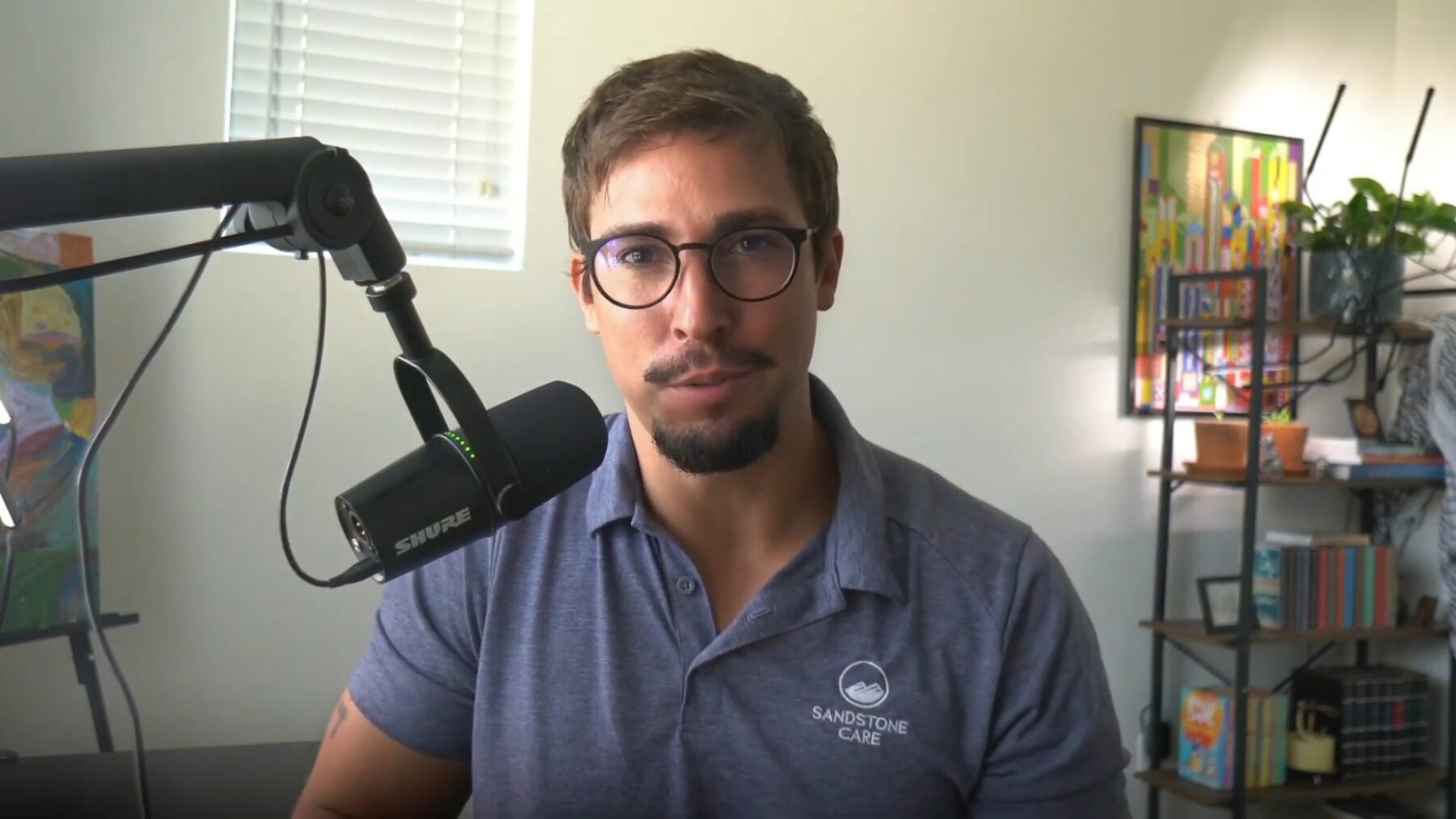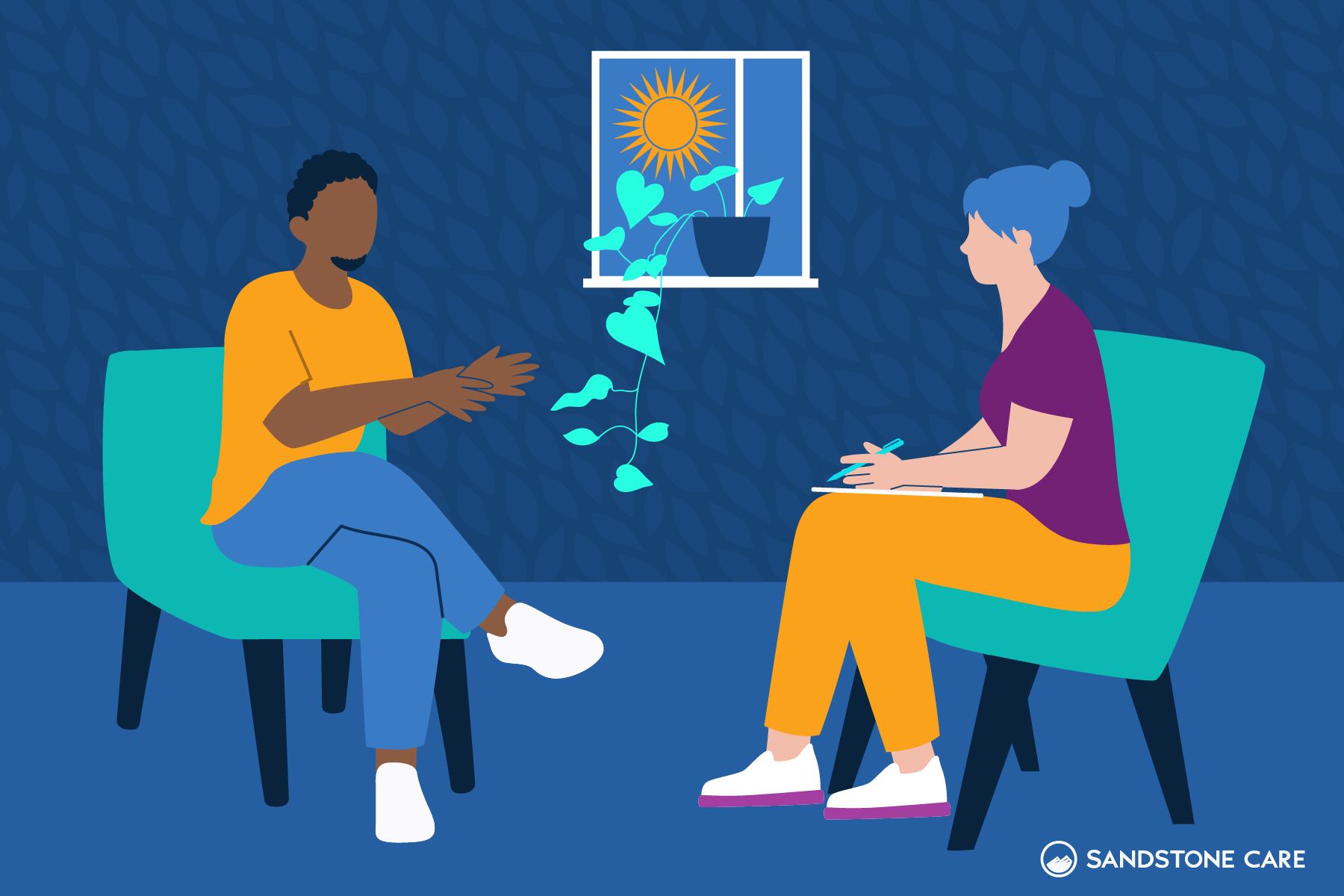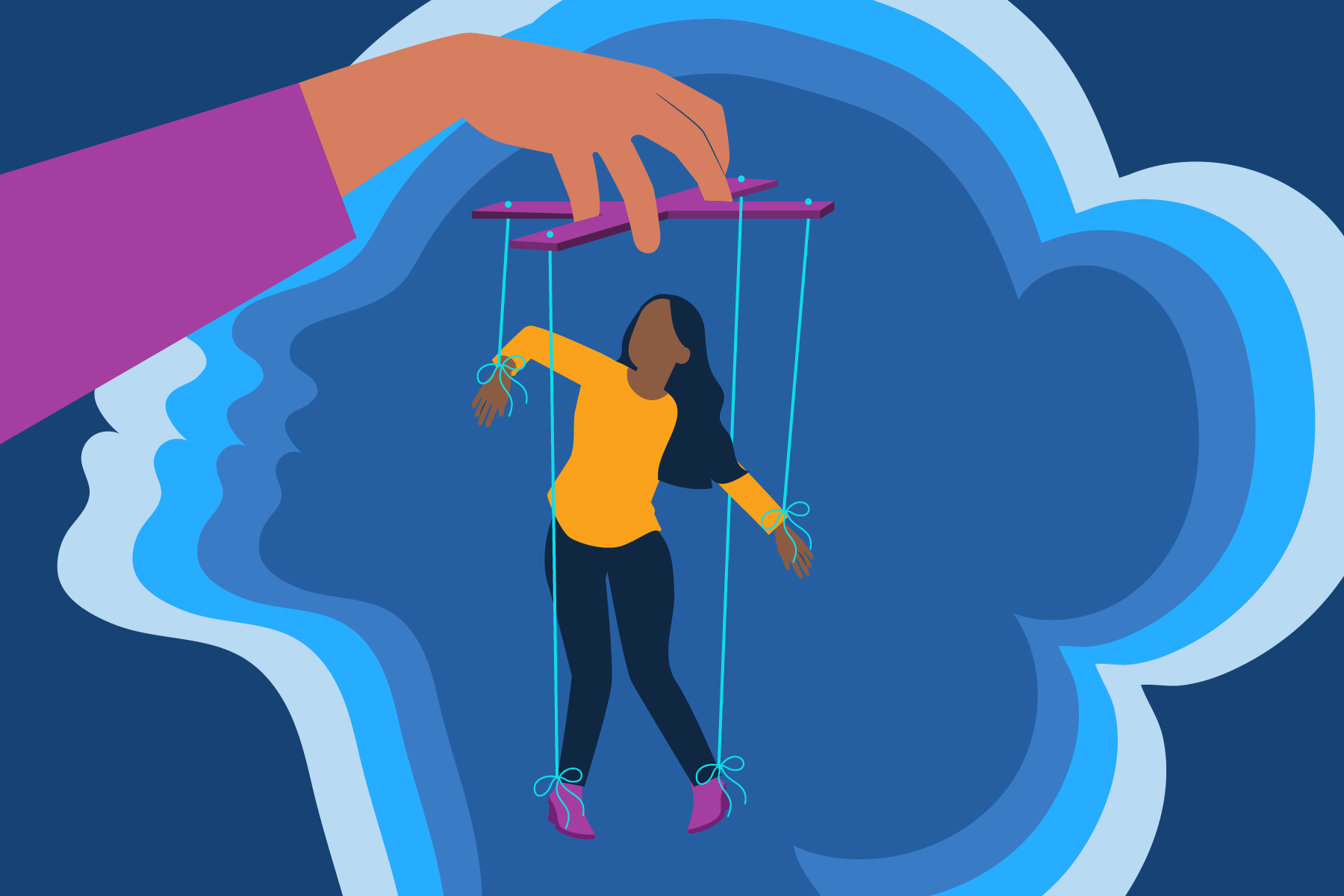Dissociation Meaning
What Is Dissociation?
Dissociation is when a person becomes disconnected from their thoughts, memories, feelings, actions, or sense of identity.
People experiencing dissociation might feel like they are outside their own body, watching themselves, or that the world around them isn’t real.
How Long Does Dissociation Last?
When a person dissociates, it might last for a couple of minutes, hours, or even days.
In some severe cases, it can last weeks, months, or years. However, severe cases almost never go longer than two weeks.
Can You Get Stuck in Dissociation?
Yes, it is possible a person can feel stuck in dissociation, especially if they suffer from chronic dissociation.
However, it’s unlikely for someone to be trapped the same continuous, unbroken episode for extended periods of time.
People who suffer from dissociative mental illnesses, such as dissociative identity disorder or depersonalization-derealization disorder, will often experience more severe episodes more frequently.
This can cause them to feel stuck, or that they are spending more time dissociated than they are present in their lives.
If you feel stuck in with dissociation, reaching out for professional help, such as your healthcare provider or a mental health professional is crucial to getting the right diagnosis and breaking the cycle.
HOW DO YOU KNOW IF YOU’RE ZONING OUT MORE THAN IS HEALTHY?
Call (888) 850-1890 to schedule your own personal mental health assessment and find out from the experts.
Causes of Dissociation
Why Do I Dissociate?
One of the most common reasons a person dissociates is as a natural response to trauma.
Dissociation can occur as a response to coping with stressful experiences. It can also be a symptom of a variety of mental health disorders, including post-traumatic stress disorder (PTSD), depression, anxiety, schizophrenia, borderline personality disorder (BPD), or bipolar disorder.
Also, if someone does not get enough sleep, especially during a time when they are experiencing a lot of stressful situations, they are at risk of dissociating.
Lastly, a person might dissociate due to side effects of substance use or medication.
What Triggers Dissociation?
One of the most common triggers of dissociation is a traumatic event.
Sometimes, when something traumatic happens, the brain may be overwhelmed by the pain, fear, and grief of the experience.
In an attempt to keep the victim functioning and protected, the brain puts up a type of “barrier” between them and the outside world.
This barrier often makes the experience seem less real. Sometimes the victims may become entirely detached from their own daily lives in the process.
Other things that trigger dissociation can be:
- Mental health disorders
- Stress
- Medications
- Substance abuse
Am I Dissociating, or Is It ADHD?
Studies show that there is a link between ADHD and an increased risk of experiencing dissociative episodes.
Additionally, individuals with ADHD who have also experienced trauma are at a higher risk of experiencing dissociation than those who experience trauma without an attention disorder.
ADHD and dissociation can also share similar symptoms, such as emotional numbness or sudden shifts in mood.
If you are experiencing symptoms of ADHD or dissociation, it is best to get a proper diagnosis from a professional – especially since they can be difficult to tell apart, and they can occur at the same time.
Does Trauma Cause Dissociation?
Individuals who have experienced trauma are at a higher risk of dissociation.
Dissociation can serve as the brain’s natural response to trauma.
When a person experiences something difficult and overwhelming to process, the mind might dissociate from or disconnect from these experiences because it is too much to cope with.
However, this is a short-term coping mechanism that often makes the situation worse.
People who dissociate after trauma will still often have flashbacks, anxious thoughts, and symptoms of depression after the episode is over.
Is Dissociation Linked to Autism?
Dissociation and autism are different conditions, but they can sometimes be connected because people with autism frequently experience high stress, sensory overload, or trauma.
For example, consider a person with autism who is faced with overwhelming surroundings, like loud noises or bright lights.
To cope, they might “zone out” or feel disconnected from their surroundings. This reaction is a form of dissociation, helping them manage the intense stress.
Both conditions can involve emotional numbness and difficulty in social interactions, making it harder to tell them apart.
If someone with autism experiences dissociative symptoms, it’s important to seek help from a mental health professional.
Can Anxiety Cause Dissociation?
Yes. Dissociation can be a symptom of anxiety.
When a person experiences an increased level of stress, dissociation can be triggered as a response to cope with that stress.
Additionally, both anxiety and dissociation can stem from trauma, and the symptoms of both mental health challenges may appear at the same time.
Signs of Dissociation
What Does Dissociation Feel Like?
When people dissociate, they experience feelings of detachment and disconnection from themselves and their surroundings.
Some people explain dissociation as an out-of-body experience where they feel like they are watching themselves or their own lives as if it were a movie.
How Do You Know if You’re Dissociating?
Certain signs to tell if you are dissociating can include:
- Feeling disconnected from yourself or your surroundings
- Feeling emotionally detached
- Experiencing memory losses
- Sudden shifts in mood
- Symptoms of depression and/or anxiety
- Changes in perception of time or surroundings
- Surroundings seem distorted or strange
- “Spacing out” often
- Difficulty concentrating
Am I Zoning Out or Dissociating?
Zoning out can be considered a significantly milder form of dissociation.
For example, a person might daydream or space out and become disconnected from the outside world. This might last a few minutes, but they often return to reality.
Dissociation is believed to be a bit more severe when it comes to disconnection and separation from reality.
It is common for people to zone out from time to time, especially when they are fatigued or stressed, but dissociation typically involves more severe disconnection from yourself and reality.
What Do Your Eyes Do When You Dissociate?
When a person dissociates, their eyes might appear glazed over.
Studies also suggest that dissociation can also link to visual distortions.
Types of Dissociation
What Are the Types of Dissociation?
Dissociation can occur in a variety of different ways.
There are three different groups that are commonly used to categorize types of dissociation.
Dissociative amnesia is when a person has difficulty remembering certain things. This might look like:
- Experiencing memory gaps where you can’t remember certain events
- Having trouble remembering certain details about yourself or your history
- Forgetting how to do things you used to be able to do
Another form of dissociation is a dissociative fugue, in which a person might travel somewhere but not be able to remember how they got there. With dissociative fugue, a person might develop a new identity because they forget important details about themselves.
Lastly, a person might experience derealisation, where they feel like their life is not real.
This might look like:
- Feeling detached from your surroundings
- Feeling like you are dreaming
- Things look distorted or unreal
- Feeling disconnected from your body
- Seeing things as blurry or colorless
What Is Derealization?
Derealization involves feeling detached from your surroundings.
A person might feel that what is happening around them isn’t real or as if they are in a dream.
A person’s perception of time might change, or things around them might appear “wrong” or distorted.
Derealization, like dissociation, can be very scary because it can feel like a person is losing control over their own body.
What Is Depersonalization?
Depersonalization is when a person feels disconnected from their body, their feelings, or their environment.
A person might feel that they are watching their body as an outsider, feel emotionally disconnected from themselves or loved ones, or feel that the world is meaningless, among other symptoms.
How to Stop Dissociation in the Moment
How Do I Get Myself Out of Dissociation?
One way to address dissociation is to seek professional help to help you identify the core root cause of it.
Sometimes, it is not as easy as just “snapping out” of it, and trying to rapidly get out of a dissociative state can sometimes make the symptoms worse.
Some ways to help you cope and slowly come out of a dissociative state can include:
- Practicing breathing exercises
- Journaling
- Using mindfulness and meditation practices
- Leaning on your support system
- Creating a crisis plan
- Prioritizing self-care
- Getting enough rest
How Long Does It Take To Snap Out of Dissociation?
Some people might snap out of dissociation in minutes; others might take hours, days, weeks, or months.
Does Sleeping Help With Dissociation?
Yes, sleep can help with dissociation by allowing your brain to process and integrate difficult experiences in a healthy way.
This reduces the likelihood of feeling detached or disconnected.
Research also shows that sleep deprivation is associated with increased symptoms of dissociation.
Can Exercise Help With Dissociation?
Research shows that exercise can reduce feelings of depression and stress, which can commonly trigger dissociative episodes.
Exercise can also increase awareness of a person’s body, which can help them reconnect with the present moment. This grounding can help manage symptoms of dissociation.
What Foods Help Dissociation?
Eating a balanced diet is important for one’s overall health and well-being.
More research is needed to determine if certain foods can help with dissociation.
However, eating a diet with minimally processed foods and more fruits, vegetables, and foods rich in omega-3 fatty acids can help support mental health.
Nuts, seeds, and legumes are also great for the brain.
Grounding Techniques for Dissociation
What Kind of Grounding Techniques Help With Dissociation?
Grounding techniques are exercises and practices that can help a person come back to the present moment.
Common grounding techniques that can help with dissociation include:
- Breathing slowly
- Listening to the sounds around you
- Walking barefoot
- Dunking your face or hands into cold water
- Smelling or sniffing something with a strong smell
- Touching something with a unique texture
Do Grounding Techniques Help With Dissociation?
One of the main components of dissociation is that a person becomes disconnected from the world around them.
Part of helping this is reconnecting with reality and feeling connected to the present moment.
Grounding techniques can help a person engage their five senses and reconnect to their surroundings, helping them relieve stress and practice mindfulness.
How Do I Ground Myself During a Dissociative Episode?
One way to ground yourself during a dissociative episode is by identifying one thing you can see, hear, feel, taste, and smell.
This practice can help a person come back to the present and connect with their surroundings.
Other ways to ground yourself during a dissociative episode can include:
- Breathing slowly
- Hold an ice cube or splash your face with cold water
- Wrap yourself in a blanket
- Stand outside barefoot and feel the ground
Does Breathing Help With Dissociation?
Certain breathing techniques can help a person calm the nervous system and come back to the present moment.
Common breathing techniques that have helped people with dissociation can include box breathing or 4-7-8 breathing.
Therapy for Dissociation
What Therapy Helps With Dissociation?
The most common forms used to help with dissociation or dissociative disorders include cognitive behavioral therapy (CBT) and dialectical behavior therapy (DBT).
Does CBT Help With Dissociation?
Studies show that cognitive therapy can help individuals experiencing dissociation conceptualize the episode and build healthy coping skills to manage and overcome the episode.
CBT is a commonly used form of treatment for dissociation.
What Do Therapists Do for Dissociation?
When dissociation stems from trauma, a therapist can help a person process traumatic experiences and get to the core root of where the dissociation is coming from.
A therapist can help guide an individual into coming back to the present moment and teach them certain skills and techniques that they can use outside of therapy to help cope with stress and things that might trigger dissociation.
Dissociation Treatment
How Do You Heal From Dissociation?
Talk therapy, or psychotherapy, is the most common approach to help people heal from dissociation.
Healing from dissociation means addressing the root cause of what is causing the dissociation. If dissociation is a symptom of trauma, then addressing the trauma can help a person heal from dissociation.
One of the biggest parts of coping and healing from dissociation is learning how to be present in the moment, how to reconnect with yourself and your surroundings, and how to ask for help when you need it.
What Happens if Dissociation Is Left Untreated?
If dissociation is left untreated, it can worsen over time and become more severe.
They can also develop a dissociative disorder, which can impact a person’s everyday life, health, and well-being.
If dissociation is left untreated and gets worse, it can lead to a lot of distressing experiences for an individual.
How Do Doctors Treat Dissociation?
Doctors treat dissociation based on what it stems from.
Treatment for dissociation typically involves some form of psychotherapy.
If a person is diagnosed with a dissociative disorder, doctors may also prescribe certain medicines to help manage their symptoms.
What Medication Is Good for Dissociation?
Medications that are sometimes prescribed for dissociation can include antidepressants, anti-anxiety medication, or antipsychotic medicine.
How to Help Someone Who Is Dissociating
Do Dissociated People Know They Are Dissociating?
People who are dissociating are usually not aware of it in the moment.
They also might experience memory lapses in which they can’t even remember what they felt or what happened during the time they dissociated.
However, some people might be aware of when they start dissociating because they recognize that they feel physical symptoms of beginning an “out-of-body” experience.
In some scenarios they can also identify when they feel disconnected from themselves and the people around them.
How Do Other People Act When They Are Dissociating?
Somebody who is dissociating may show signs that include:
- Avoiding eye contact
- Seeming emotionally shut down
- Glazing over eyes
- Shifting their mood suddenly
- Having difficulty handling intense emotions
- Experiencing concentration problems
- Feeling that their surroundings are distorted
- Forgetting important information such as personal details or certain events
- Experiencing symptoms of depression and anxiety
What Can I Do to Help Someone Who Is Dissociating?
One of the best things you can do to help someone who is dissociating is to help them get connected to professional help.
This might look like helping them contact a therapist or healthcare provider to get a proper diagnosis for the underlying problem and get the care they need.
You can also connect them with support groups so that they can learn coping strategies from others who have dissociative experiences.
If someone is experiencing a dissociation episode in front of you, it is important to stay calm and be patient.
Help them practice breathing exercises or other techniques to help them come back to the present moment.
If you are not sure how to help, ask them if there is some way you can help them or offer support.
What Shouldn’t You Do to Someone Who Is Dissociating?
If someone is going through a dissociative episode, one thing you shouldn’t do is respond with anger.
When a person is dissociating, stressful interactions, such as someone yelling at them to “snap out of it,” can actually make their symptoms worse.
Many dissociative episodes are caused by the brain’s attempt to defend the person from a perceived threat or traumatic trigger.
When people react with anger or panic, that can make it far more difficult for the person suffering to be able to calm down enough to feel grounded and present again.
It can be difficult to know how to respond, but it is important to stay calm and be patient. This can help offer them a safe space to open up and come to for help.




